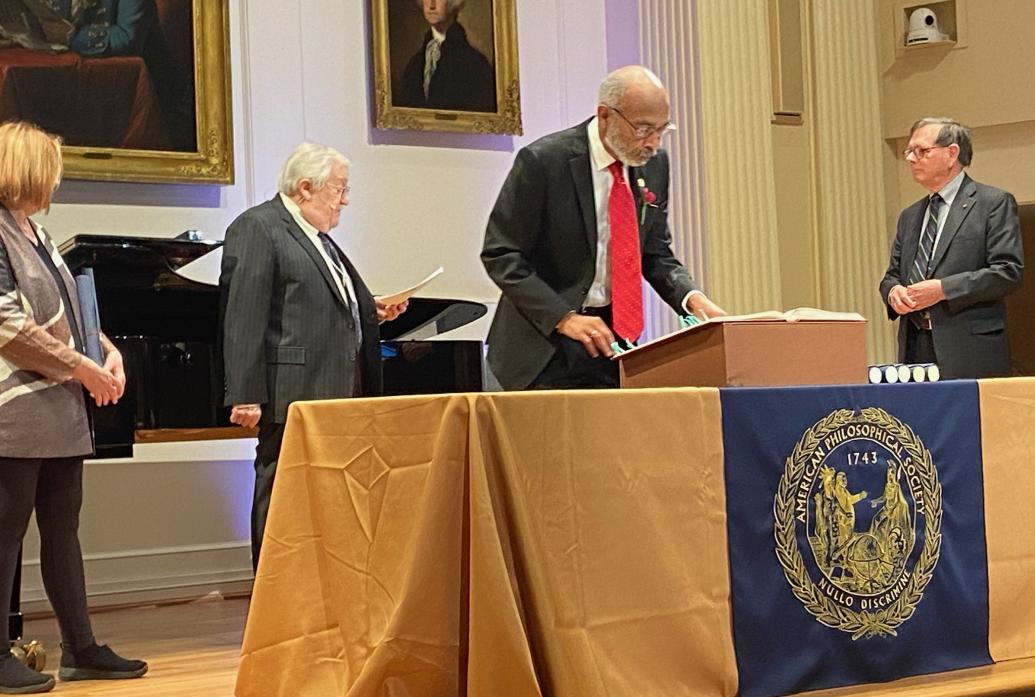
Emery N. Brown, Edward Hood Taplin Professor of Medical Engineering and Computational Neuroscience in The Picower Institute for Learning and Memory, the Institute for Medical Engineering and Science, and the Department of Brain and Cognitive Sciences, has signed the Roll Book of the nation’s oldest learned society for the first time as a member.
The ceremonial moment at the fall meeting of the American Philosophical Society in Philadelphia Nov. 18 marked Brown’s first participation as a member in the society, which has a founding mission of "promoting useful knowledge" through research, fellowships, and public outreach.
Above: Emery N. Brown signs the Roll Book of the American Philosophical Society for the first time as a member. Image by Virginia Andradas.
A practicing anesthesiologist at Massachusetts General Hospital, Brown is also a neuroscientist and a statistician. Throughout his career as a researcher and clinician he has uniquely blended all three interests. In his early work he made numerous contributions to statistical analysis of neuroscience data, such as decoding a rodent’s memory of its location in a maze from “state-space” analysis of neural spike train data in the hippocampus. His neuroscience statistical analyses have had wide applications in studies of learning and memory, brain-computer interfaces, and systems neuroscience.
For nearly 20 years, Brown’s lab has also applied his statistics and neuroscience expertise directly to anesthesiology by advancing fundamental studies of how each major anesthetic drug affects brain circuits to induce and maintain simultaneous but reversible states of unconsciousness, amnesia, immobility, and analgesia. At the systems neuroscience level, Brown and collaborators have shown how doses of each of these drugs produces oscillation signatures in EEG measurements that directly convey brain state. In his most recent paper he demonstrated how a closed-loop automated system can employ such brain state measurements to constantly optimize doses of propofol to maintain a desired level of unconsciousness. In the clinic this approach can reduce post-operative complications, such as cognitive dysfunction.
In a new research endeavor at MIT and MGH, the Brain Arousal State Control Innovation Center, Brown is working to establish more research programs that will integrate anesthesiology and neuroscience.
Brown, who is also a professor at Harvard Medical School, said he was motivated by the society’s history and mission.
"I am highly honored to be inducted to the American Philosophical Society,” he said. “This august society was founded in 1743 by Benjamin Franklin. Its objective of fostering the growth of useful knowledge is even more relevant today. I hope that my work can make at least a small contribution to this effort."





